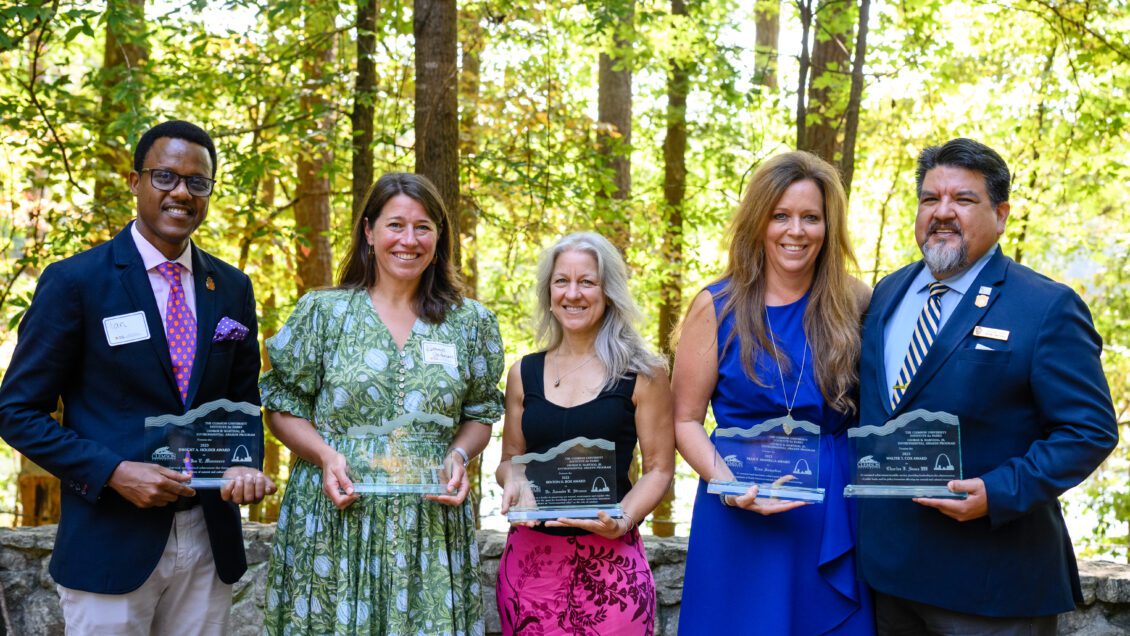The Clemson University Institute for Parks recently celebrated five individuals for their career contributions to the parks and conservation fields and exemplary leadership in addressing environmental issues and concerns at the 45th George B. Hartzog Jr. Lecture Series and Awards program.
The program is named for the seventh director (1964-1972) of the National Park Service (NPS), George B. Hartzog Jr., whose administration led the largest expansion of the national park system in NPS history by developing urban proximate parks and expanding its role in urban recreation.
This year the following were recognized:
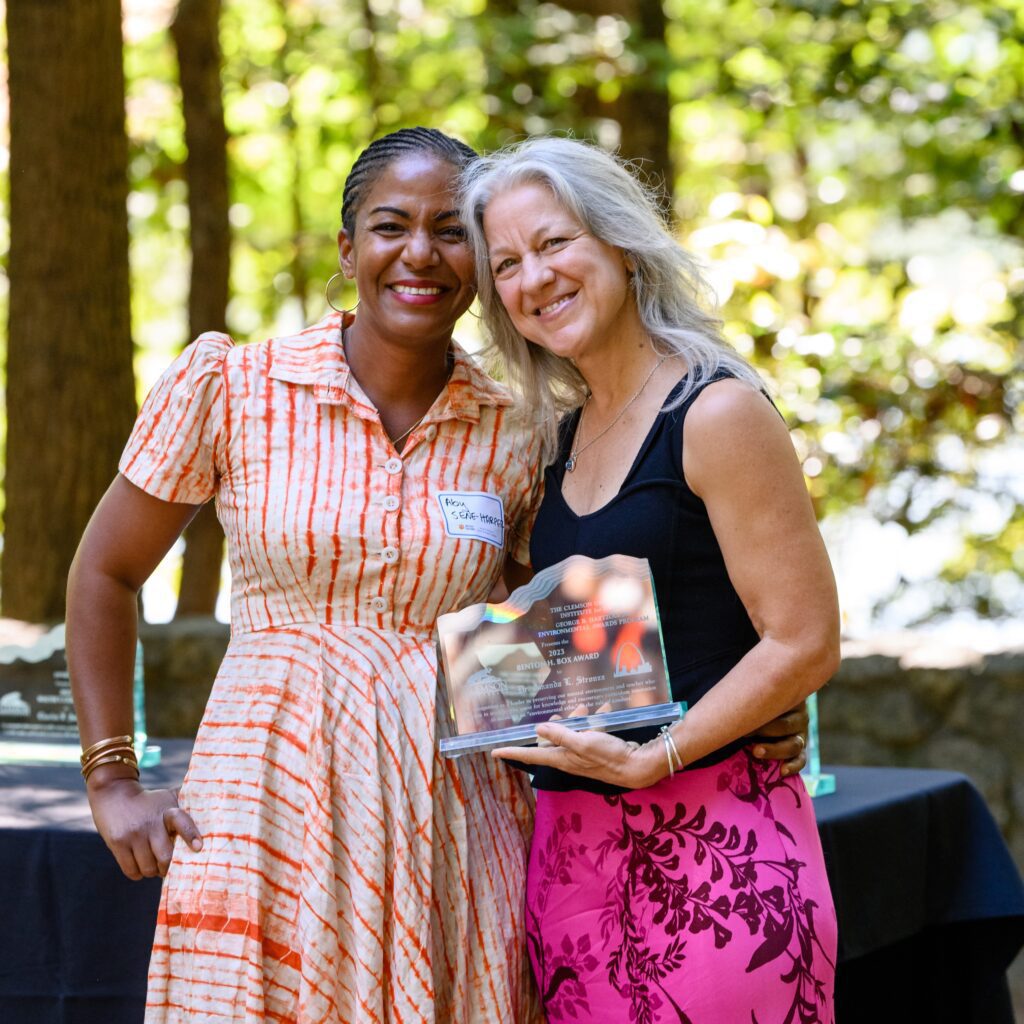
Amanda Stronza, Ph.D., professor at Texas A&M University, received the Benton H. Box Award for her distinguished career as a leader in environmental preservation and a teacher who inspires students in their quest for knowledge, encouraging curriculum innovation to include environmental ethics as a rule of conduct. Stronza was recognized for her lifetime of research, advocacy and dedication to the protection of some of the world’s most iconic endangered wildlife and her innovative approach coupling research, arts and advocacy to assist in these efforts.
Details
Biography
Amanda Stronza, Ph.D., is an anthropologist, photographer, conservationist and professor in ecology and conservation biology at Texas A&M University. Her passion is in understanding how humans relate to other animals with 30 years of research and conservation in 12 countries in the Amazon, southern Africa and southeast Asia. Her work combines anthropology, conservation biology and animal studies with years of living in rural and traditional communities and learning from people who understand nature and culture as deeply entwined and who see wild animals as ancestors and kin. Stronza is known for her stories and photographs of animals. People often say she has a way capturing what they feel about animals, even if they don’t know how to express it. She has used this talent to raise more than $9 million for wildlife conservation, animal rescue and research. Since 1996, her ethnographic work in the Amazon has focused on ecotourism and wildlife conservation with Indigenous communities in Ecuador, Peru and Bolivia. In 2006, she co-founded the Applied Biodiversity Science Program, a multidisciplinary graduate program funded by the National Science Foundation, for students and faculty who work in biodiversity conservation. In 2013, with a grant from The Howard G. Buffett Foundation, she co-founded and directed Ecoexist, a non-profit organization devoted to supporting human-elephant coexistence in Botswana. Her current research is supported by the United States Department of Agriculture, examining human-lion interactions in the Kalahari. She is launching new research on human-macaque interactions in Nepal and India with the aim of developing a generalizable theory of coexistence.
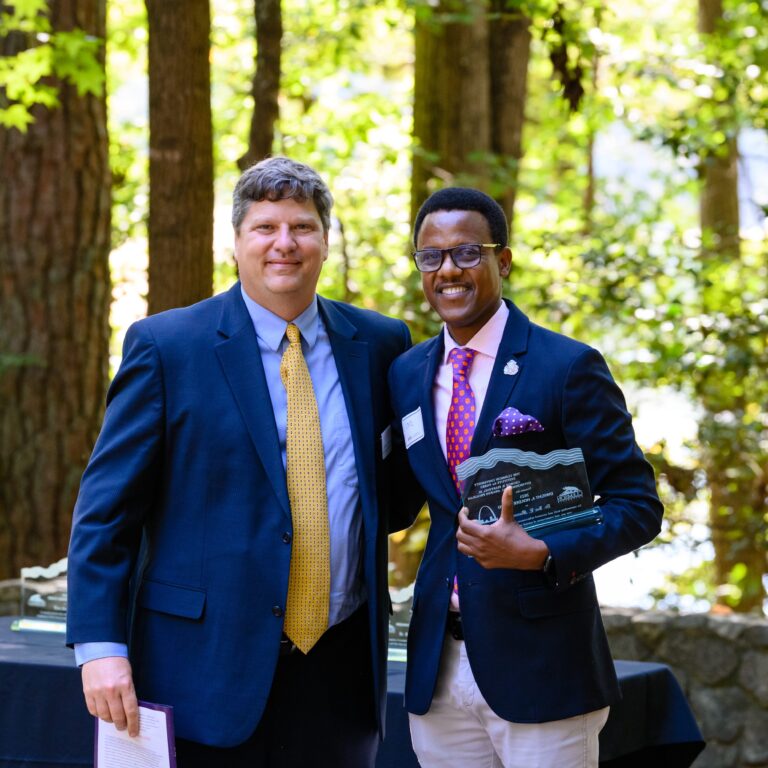
Ian E. Munanura, Ph.D., associate professor at Oregon State University, received the Dwight A. Holder Award for his outstanding work and sustained achievement that fosters understanding, wise use and conservation of natural and cultural resources. Munanura was recognized for his continuous efforts to improve sustainable tourism practices and protect critical habitats across Africa.
Details
Biography
Ian E. Munanura, Ph.D., is a transformative force in the realm of conservation, uniting academia with real-world impact. In 2000, Munanura embarked on his academic journey, earning a bachelor’s degree in management from the University of Rwanda. In 2004, he achieved a master’s degree in conservation and tourism from the prestigious Durrell Institute of Conservation and Ecology at the University of Kent in the United Kingdom. The pinnacle of his academic journey came in 2013 when Munanura graduated with a doctorate in parks, recreation and tourism management from Clemson University. At Oregon State University, he holds a tenured position as an associate professor in the College of Forestry’s Department of Forest Ecosystems and Society. His teaching intertwines ecotourism, community sustainability and wildlife conservation. In the United States, his research explores the intricate relationship between forest-based recreation and racial equity. While in Africa, he studies solutions to human-wildlife conflict through sustainable nature-based tourism practices. Beyond the classroom, he nurtures the next generation of global conservation leaders by mentoring both graduate and undergraduate students. His passion for advancing ecotourism is underscored by his role as a co-editor of a seminal book on ecotourism in sub-Saharan Africa and his contributions as an author to five book chapters, all dedicated to the vital subject of ecotourism as a mechanism for human-wildlife conflict mitigation and sustainability. Serving as coordinator for the International Union for Nature Conservation’s Forest Landscape Restoration Program in the East and Southern Africa region, he led the launch of a groundbreaking multinational forest restoration needs assessment program, demonstrating visionary leadership. Munanura’s legacy is further solidified by his role as a country director for the Wildlife Conservation Society (WCS) in Rwanda.
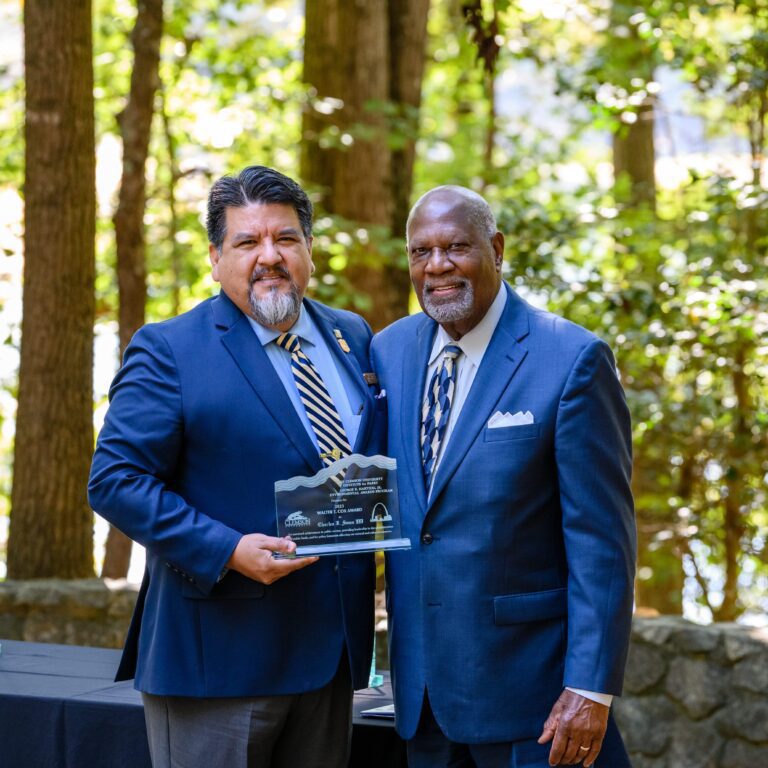
Charles F. Sams III, 19th director of the National Park Service, received the Walter T. Cox Award for excellence in public service, providing leadership in the administration of public lands and policy formation related to the nation’s natural and cultural resources.
Details
Biography
Charles F. “Chuck” Sams III was ceremonially sworn in as the 19th director of the National Park Service on December 16, 2021, by Interior Secretary Deb Haaland. Sams is Cayuse and Walla Walla and is an enrolled member of the Confederated Tribes of the Umatilla Indian Reservation in Northeast Oregon where he grew up. He also has blood ties to the Cocopah Tribe and Yankton Sioux of Fort Peck. Sams most recently served as Oregon Governor Kate Brown’s appointee to the Pacific Northwest Power and Conservation Council (NW Council) where he held a position as a council member from March to December of 2021. Prior to joining the NW Council, he served as executive director for the Confederated Tribes of the Umatilla Indian Reservation. For 30 years, Sams has worked in tribal and state government, and in the non-profit natural resource and conservation management field, with an emphasis on the responsibility of strong stewardship for land preservation for this and future generations. Sams is a veteran of the U.S. Navy where he served as an intelligence specialist. He holds a Bachelor of Science in business administration from Concordia University and a Master of Legal Studies in Indigenous peoples law from the University of Oklahoma School of Law.
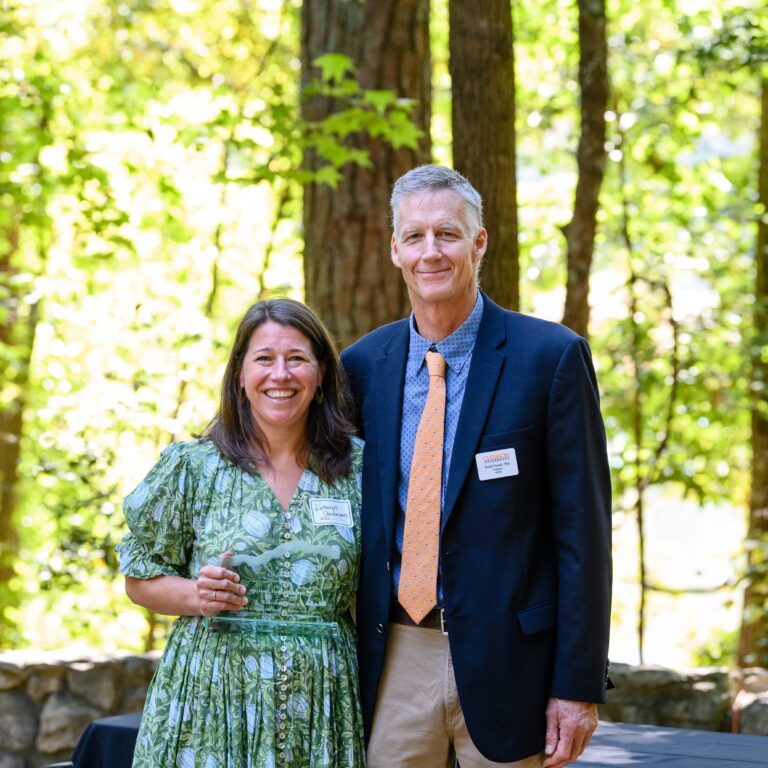
Kathryn Stevenson, Ph.D., associate professor at North Carolina State University, received the William C. Everhart Award for achievements throughout her career that cultivated an appreciation of natural and cultural heritage. Stevenson was recognized for advancing the practice of environmental education and a sustained commitment to developing the capacity of our nation’s environmental educators.
Details
Biography
Kathryn Stevenson, Ph.D., is an associate professor in the parks, recreation and tourism management department at North Carolina State University in Raleigh, N.C. She researches the benefits of time outdoors and how youth offer unique perspectives for environmental challenges. Her most recent projects include building capacity of evaluation both in North Carolina and nationally and understanding how youth-led conversations around the environment may help overcome political polarization among adults. Her work has been featured in several national news outlets, including the New York Times, Washington Post and National Public Radio. Stevenson is an active environmental education practitioner in communities in North Carolina and beyond. She oversees an undergraduate environmental education minor at N.C. State, serves on the N.C. Environmental Education Certification Advisory Board, and is active in both the Environmental Educators of North Carolina and the North American Association of Environmental Education. She enjoys partnering with organizations to support program evaluation, including work with the N.C. Science Museums, Muddy Sneakers, the N.C. Arboretum and the National Recreation Foundation.
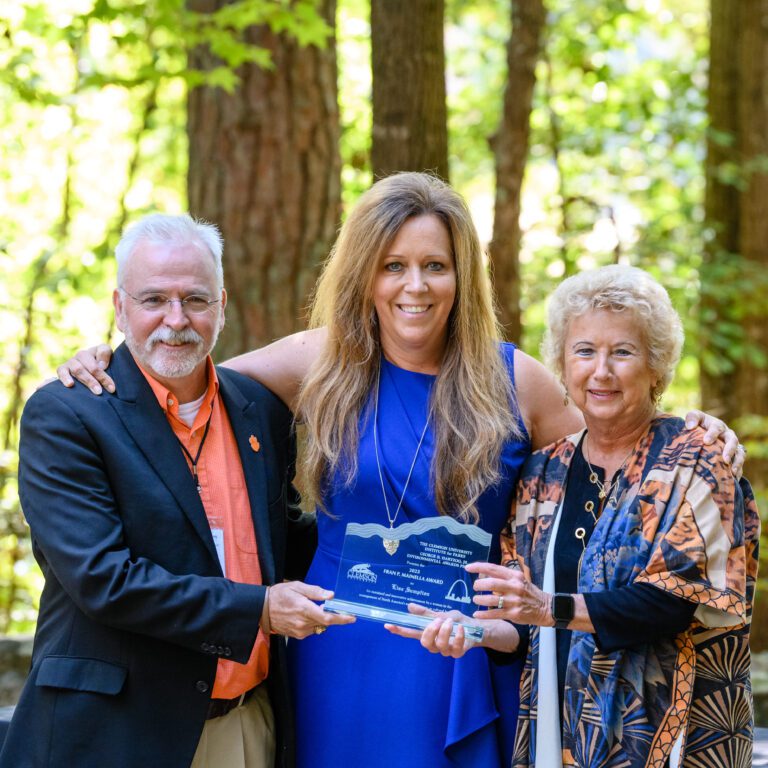
Lisa Sumption, director of the Oregon Parks and Recreation Department, received the Fran P. Mainella Award. Sumption was recognized for her state and national leadership as one of the longest-serving State Park directors, president of the National Association of State Park Directors and a member of the U.S. National Park Service System Advisory Board.
Details
Biography
Lisa Sumption has been serving as the director of the Oregon Parks and Recreation Department since 2014, concurrently holding the position of Oregon’s State Historic Preservation Officer. With a tenure of over 23 years in public service, Sumption stands as one of the longest-serving agency directors on the Governor’s Enterprise Leadership team. She oversees the vast Oregon state park system comprising over 113,000 acres and 254 recreational, scenic, cultural and historical sites with 53 overnight campgrounds. Sumption also serves as the president of the National Association of State Park Directors, recently completed a term as an instructor at the National State Park Leadership School and was most recently appointed to serve on the National Parks System Advisory Board by Secretary of the Interior Deb Haaland. Recognized for her strategic vision, collaborative approach and commitment to advancing park systems, Sumption has made significant contributions to the preservation, accessibility and sustainable management of recreation and historic resources both within Oregon and nationally.
It is an honor to recognize these outstanding individuals for their contributions to the promotion and protection of our nation’s natural and cultural resources. Their great work is paving the way for future generations of students, practitioners and leaders in the parks and conservation fields.
Bob Powell, Institute for Parks Director
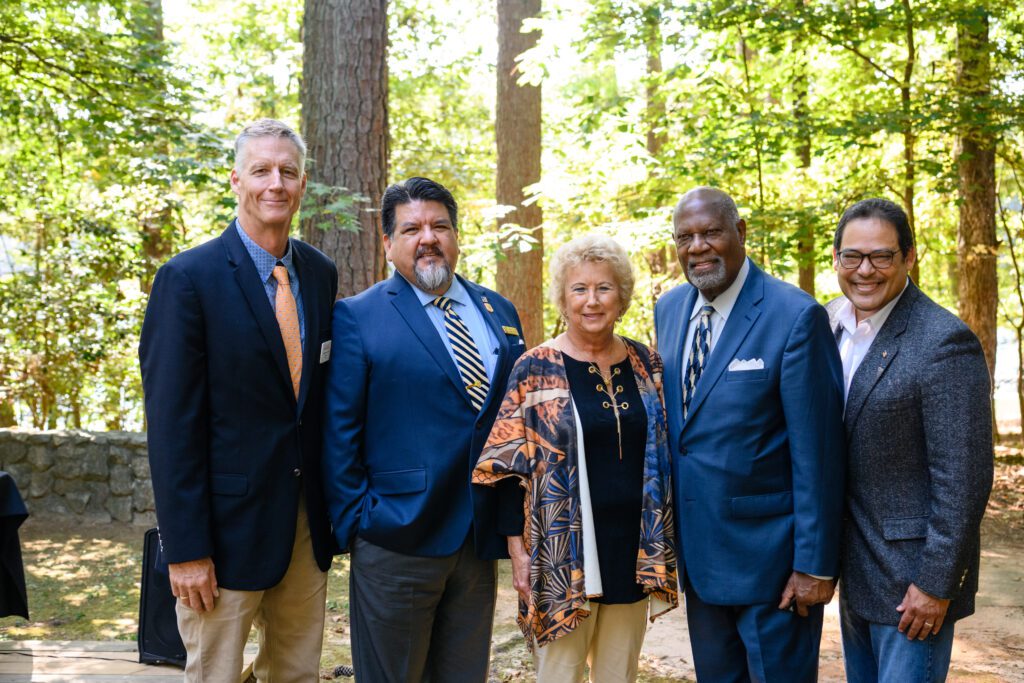
During the awards luncheon, Fran Mainella, 16th director of the NPS and first female director; Robert Stanton, 15th director of the NPS and first African American director; and David Vela, former interim director of the NPS and first Latino director, were in attendance. The Walter T. Cox Award winner Charles “Chuck” Sams III, 19th director of the NPS and first Native American director, delivered the Hartzog Lecture.
“Each year, I am honored to participate in this longstanding tradition to recognize leading figures in the field of parks and environmental conservation. With one current and three former National Park Service directors in attendance, it was incredibly special to celebrate alongside these national park trailblazers,” said Leslie Hossfeld, dean of the College of Behavioral, Social and Health Sciences. “Parks and protected areas play a critical role in community health and well-being, and through their work, these individuals are making a positive impact on communities across the nation.”
The Clemson University Institute for Parks (CUIP) provides research, education, training, and outreach that enhances the management of the world’s parks and protected areas. It accomplishes this by providing park and protected area managers with innovative research to support science-based decision-making; and by developing current and future leaders in the park movement by providing interdisciplinary and transformative education and training programs. Currently the CUIP has over 40 Clemson University Faculty affiliates (Fellows) from 4 colleges. For more information, see www.Clemson.edu/cuip
CUIP is part of the Department of Parks, Recreation and Tourism Management in the College of Behavioral, Social and Health Sciences, a 21st-century land-grant college joining together a unique combination of schools and departments: Communication, Nursing, Parks, Recreation and Tourism Management, Political Science, Psychology, Public Health Sciences and Sociology, Anthropology and Criminal Justice. These areas have distinctive characteristics and missions – all joined together by a common thread of service to people and communities.
Get in touch and we will connect you with the author or another expert.
Or email us at news@clemson.edu

